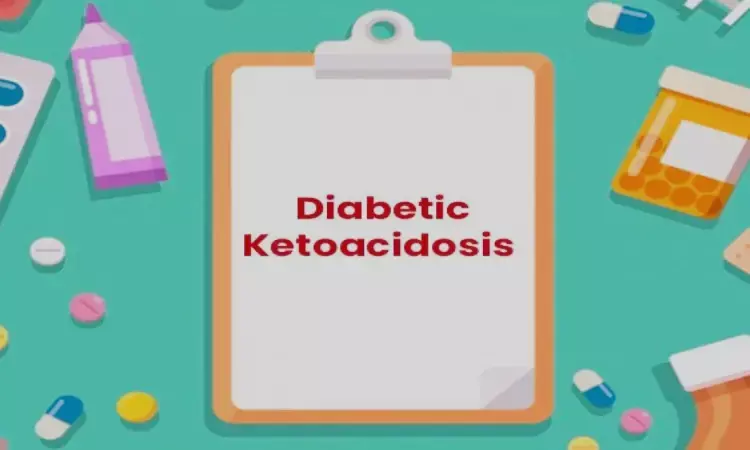- Home
- Medical news & Guidelines
- Anesthesiology
- Cardiology and CTVS
- Critical Care
- Dentistry
- Dermatology
- Diabetes and Endocrinology
- ENT
- Gastroenterology
- Medicine
- Nephrology
- Neurology
- Obstretics-Gynaecology
- Oncology
- Ophthalmology
- Orthopaedics
- Pediatrics-Neonatology
- Psychiatry
- Pulmonology
- Radiology
- Surgery
- Urology
- Laboratory Medicine
- Diet
- Nursing
- Paramedical
- Physiotherapy
- Health news
- Fact Check
- Bone Health Fact Check
- Brain Health Fact Check
- Cancer Related Fact Check
- Child Care Fact Check
- Dental and oral health fact check
- Diabetes and metabolic health fact check
- Diet and Nutrition Fact Check
- Eye and ENT Care Fact Check
- Fitness fact check
- Gut health fact check
- Heart health fact check
- Kidney health fact check
- Medical education fact check
- Men's health fact check
- Respiratory fact check
- Skin and hair care fact check
- Vaccine and Immunization fact check
- Women's health fact check
- AYUSH
- State News
- Andaman and Nicobar Islands
- Andhra Pradesh
- Arunachal Pradesh
- Assam
- Bihar
- Chandigarh
- Chattisgarh
- Dadra and Nagar Haveli
- Daman and Diu
- Delhi
- Goa
- Gujarat
- Haryana
- Himachal Pradesh
- Jammu & Kashmir
- Jharkhand
- Karnataka
- Kerala
- Ladakh
- Lakshadweep
- Madhya Pradesh
- Maharashtra
- Manipur
- Meghalaya
- Mizoram
- Nagaland
- Odisha
- Puducherry
- Punjab
- Rajasthan
- Sikkim
- Tamil Nadu
- Telangana
- Tripura
- Uttar Pradesh
- Uttrakhand
- West Bengal
- Medical Education
- Industry
Study Reveals Dose-Dependent Risk of DKA with SGLT2 Inhibitors in Type 1 Diabetes

China: A review published in Frontiers in Endocrinology revealed that the risk of diabetic ketoacidosis in individuals with type 1 diabetes (T1D) varies depending on the type and dosage of sodium-glucose cotransporter-2 inhibitors.
Drawing on data from 19 clinical studies, the findings indicated that dapagliflozin, empagliflozin, and sogliflozin were linked to a higher risk of DKA. In contrast, canagliflozin at a dose of 300 milligrams was associated with the lowest risk.
The advantages of sodium-glucose cotransporter-2 (SGLT2) inhibitors in managing type 1 diabetes mellitus (T1DM) are well-established, but their application is constrained by the risk of diabetic ketoacidosis (DKA). The impact of varying SGLT2 inhibitor doses on DKA risk in T1DM remains unclear. Therefore, Ying Liu, Department of Pharmacy, West China Hospital, Sichuan University, Chengdu, Sichuan Province, China, and colleagues performed a network meta-analysis to assess the incidence of DKA across different dosages in T1DM treatment.
For this purpose, the researchers conducted a network meta-analysis to evaluate the incidence of DKA at different doses in the treatment of T1DM. They searched electronic databases and clinical trial registries, including PubMed, Embase (Ovid SP), the Cochrane Central Register of Controlled Trials (Ovid SP), and ClinicalTrials.gov, for randomized controlled trials (RCTs) involving SGLT2 inhibitors in patients with T1DM from inception to December 2023.
Two researchers independently performed literature screening, quality assessment, and data extraction according to the inclusion and exclusion criteria. They conducted a statistical analysis using Stata 15.1 and R 4.1.3 software.
Based on the study, the researchers reported the following findings:
• Nineteen clinical studies and one clinical trial were included in the analysis.
• Five different SGLT2 inhibitors were evaluated.
• The incidence of DKA was significantly higher compared to placebo for the following:
• Dapagliflozin 5 mg (OR: 2.57).
• Empagliflozin 10 mg (OR: 2.68).
• Sogliflozin 200 mg (OR: 4.04).
• Sogliflozin 400 mg (OR: 5.96).
• Based on P scores, SGLT2 inhibitors triggered a lower overall incidence of DKA than the placebo.
• Treatment with 300 mg of canagliflozin demonstrated the lowest incidence of DKA.
"Our study found that the use of 5 mg dapagliflozin, 10 mg empagliflozin, 200 mg sogliflozin, and 400 mg sogliflozin in combination with insulin for treating T1DM was associated with an increased risk of DKA. Other SGLT2 inhibitors appeared to have a safer profile. However, it is important to note that SGLT2 inhibitors are not approved for treating T1DM in China, and their use requires close monitoring for potential adverse reactions,"
Reference:
Liu, Y., Yang, S., Jiang, A., Dan, Z., Zhao Yang, C., & Su, N. Risk of diabetic ketoacidosis caused by sodium glucose cotransporter-2 inhibitors in patients with type 1 diabetes: A systematic review and network meta-analysis of randomized controlled trials. Frontiers in Endocrinology, 15, 1453067. https://doi.org/10.3389/fendo.2024.1453067
Dr Kamal Kant Kohli-MBBS, DTCD- a chest specialist with more than 30 years of practice and a flair for writing clinical articles, Dr Kamal Kant Kohli joined Medical Dialogues as a Chief Editor of Medical News. Besides writing articles, as an editor, he proofreads and verifies all the medical content published on Medical Dialogues including those coming from journals, studies,medical conferences,guidelines etc. Email: drkohli@medicaldialogues.in. Contact no. 011-43720751


